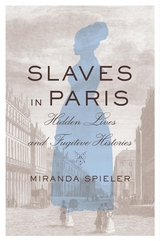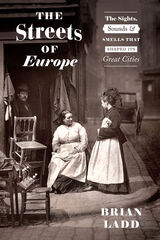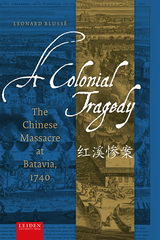6 start with S start with S

On a flower farm in colonial Algeria, a servant and field worker known as Baya escaped the drudgery of her labor by coloring the skirts in fashion magazines. Three years later, in November 1947, her paintings and fanciful clay beasts were featured in a solo show in Paris. She wasn’t yet sixteen years old. In this first biography of Baya, Alice Kaplan tells the story of a young woman seemingly trapped in subsistence who becomes a sensation in the French capital, then mysteriously fades from the history of modern art—only to reemerge after independence as an icon of Algerian artistic heritage.
The toast of Paris for the 1947 season, Baya inspired colonialist fantasies about her “primitive” genius as well as genuine appreciation. She was featured in newspapers, on the radio, and in a newsreel; her art was praised by Breton and Camus, Marchand and Braque. At the dawn of Algerian liberation, her appearance in Paris was used to stage the illusion of French-Algerian friendship, while horrific French massacres in Algeria were still fresh in memory.
Kaplan uncovers the central figures in Baya’s life and the role they played in her artistic career. Among the most poignant was Marguerite Caminat-McEwen-Benhoura, who took Baya from her sister’s farm to Algiers, where Baya worked as Marguerite’s maid and was given paint and brushes. A complex and endearing character, Marguerite—and her Pygmalion ambitions—was decisive in shaping Baya’s destiny. Kaplan also looks closely at Baya’s earliest paintings with an eye to their themes, their palette and design, and their enduring influence.
In vivid prose that brings Baya’s story into the present, Kaplan’s book, the fruit of scrupulous research in Algiers, Blida, Paris, and Provence, allows us to see in a whole new light the beloved artist who signed her paintings simply “Baya.”

In 1871 Paris was a city in crisis. Besieged during the Franco-Prussian War, its buildings and boulevards were damaged, its finances mired in debt, and its new government untested. But if Parisian authorities balked at the challenges facing them, entrepreneurs and businessmen did not. Selling Paris chronicles the people, practices, and politics that spurred the largest building boom of the nineteenth century, turning city-making into big business in the French capital.
Alexia Yates traces the emergence of a commercial Parisian housing market, as private property owners, architects, speculative developers, and credit-lending institutions combined to finance, build, and sell apartments and buildings. Real estate agents and their innovative advertising strategies fed these new residential spaces into a burgeoning marketplace. Corporations built empires with tens of thousands of apartments under management for the benefit of shareholders. By the end of the nineteenth century, the Parisian housing market caught the attention of the wider public as newspapers began reporting its ups and downs.
The forces that underwrote Paris’s creation as the quintessentially modern metropolis were not only state-centered or state-directed but also grew out of the uncoordinated efforts of private actors and networks. Revealing the ways housing and property became commodities during a crucial period of urbanization, Selling Paris is an urban history of business and a business history of a city that transforms our understanding of both.


A pioneering biographical study of enslaved people and their struggle for freedom in prerevolutionary Paris, by an award-winning historian of France and the French Empire.
In the decades leading up to the French Revolution, when Paris was celebrated as an oasis of liberty, slaves fled there, hoping to be freed. They pictured Paris as a refuge from France’s notorious slave-trading ports.
The French were late to the slave trade, but they dominated the global market in enslaved people by the late 1780s. This explosive growth transformed Paris, the cultural capital of the Enlightenment, into a dangerous place for people in bondage. Those seeking freedom in Paris faced manhunts, arrest, and deportation. Some put their faith in lawyers, believing the city’s courts would free them. Examining the lives of those whose dashed hopes and creative persistence capture the spirit of the era, Miranda Spieler brings to light a hidden story of slavery and the struggle for freedom.
Fugitive slaves collided with spying networks, nosy neighbors, and overlapping judicial authorities. Their clandestine lives left a paper trail. In a feat of historical detective work, Spieler retraces their steps and brings to light the new racialized legal culture that permeated every aspect of everyday life. She pieces together vivid, granular portraits of men, women, and children who came from Africa, the Caribbean, and the Indian Ocean. We learn of their strategies and hiding places, their family histories and relationships to well-known Enlightenment figures. Slaves in Paris is a history of hunted people. It is also a tribute to their resilience.

Merchants’ shouts, jostling strangers, aromas of fresh fish and flowers, plodding horses, and friendly chatter long filled the narrow, crowded streets of the European city. As they developed over many centuries, these spaces of commerce, communion, and commuting framed daily life. At its heyday in the 1800s, the European street was the place where social worlds connected and collided.
Brian Ladd recounts a rich social and cultural history of the European city street, tracing its transformation from a lively scene of trade and crowds into a thoroughfare for high-speed transportation. Looking closely at four major cities—London, Paris, Berlin, and Vienna—Ladd uncovers both the joys and the struggles of a past world. The story takes us up to the twentieth century, when the life of the street was transformed as wealthier citizens withdrew from the crowds to seek refuge in suburbs and automobiles. As demographics and technologies changed, so did the structure of cities and the design of streets, significantly shifting our relationships to them. In today’s world of high-speed transportation and impersonal marketplaces, Ladd leads us to consider how we might draw on our history to once again build streets that encourage us to linger.
By unearthing the vivid descriptions recorded by amused and outraged contemporaries, Ladd reveals the changing nature of city life, showing why streets matter and how they can contribute to public life.

Surrealism from Paris to Shanghai is the first English language book dedicated to introducing Chinese Surrealism, enlarging the geographical authority of Surrealist studies beyond a Eurocentric prism of analysis. The book reveals the mutual cultural influence between China and the Western avant-garde, moving beyond notions of “copying from the West.” Utilizing primary source materials, particularly periodicals, Lauren Walden reveals the underexplored dissemination of Surrealism in Shanghai. Highlighting how Surrealism was applied across a broad political spectrum in Shanghai including anti-colonialism, communism, and nationalism, Walden also demonstrates why Shanghai’s former French concession became the birthplace of Surrealism in China.
READERS
Browse our collection.
PUBLISHERS
See BiblioVault's publisher services.
STUDENT SERVICES
Files for college accessibility offices.
UChicago Accessibility Resources
home | accessibility | search | about | contact us
BiblioVault ® 2001 - 2025
The University of Chicago Press









